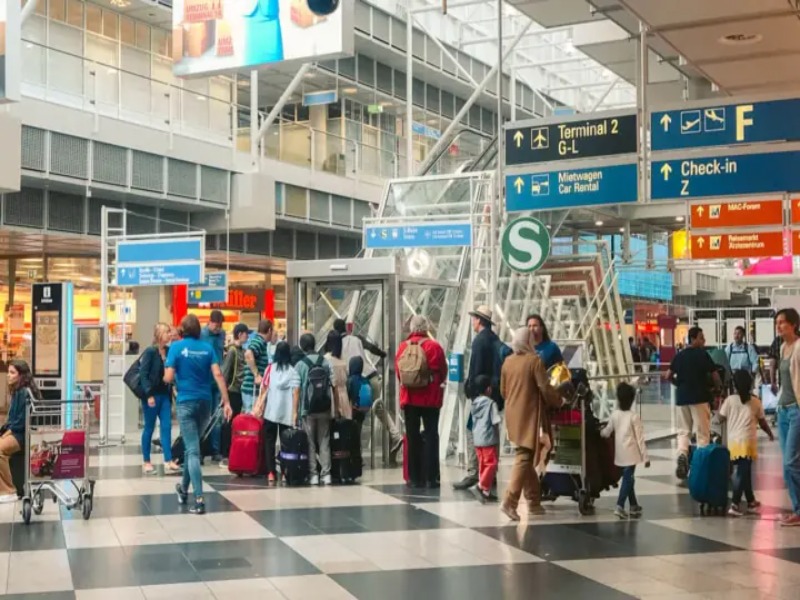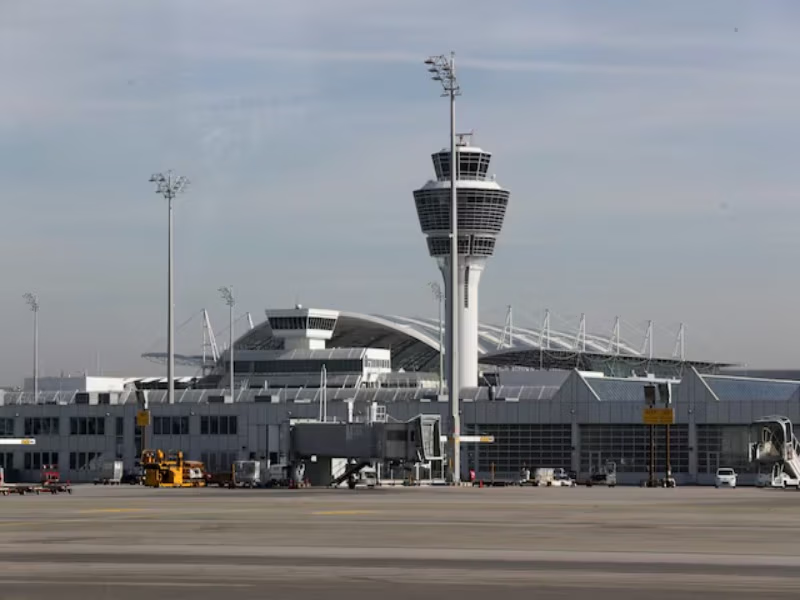Munich Airport in Germany had to shut down nearly seven hours overnight after a spate of drone sightings, the most recent European aviation hub to close due to inexplicable drone actions.
In a statement, the airport reported that nearly 3,000 passengers were on board 17 flights that were grounded soon after 10 pm local time on Thursday.
The statement further added that 15 incoming flights have been diverted to the German cities of Stuttgart, Nuremberg and Frankfurt, and Vienna in neighboring Austria.
Flight tracking site Flightradar had indicated that several aircraft were diverted around the airport at approximately 11 pm local time and then proceeded to fly to other destinations.
CNN reports that the airport resumed operations at 5 am local time after flights were considered safe for arrivals and departures, which was a call handler answering passenger calls and enquiries.
It was reported that “Now everything has resumed. Some flights were cancelled, but the airport has reopened. Since 5 am, all arrivals and departures are safe.”
According to the airport’s website, the Lufthansa long-haul flight from Bangkok was the first plane to arrive in Munich at 5.25 am.
The Bavarian Airport in Southern Germany is a Lufthansa flag-carrier hub, which was the airport to served almost 20 million passengers in the first half of this year.
One Lufthansa spokesperson informed CNN that 19 of its flights were canceled or diverted as a result of the closure, three of them long-haul flights to Asia that will be rescheduled.
Officials reported that the affected have been facilitated with food, drink, and blankets. The agency has taken photographs depicting individuals resting on a row of camp beds.
CNN has reported that the Bavarian State Police, the Federal Criminal Police Office, and the Domestic Intelligence Agency in Germany have been asked to comment on the situation.

Sliding drones in Western Europe
Munich is the most recent European airport that close following the sighting of drones in the area. Ten out of a thousand passengers were affected by a series of sightings over a number of airports in Denmark and Norway in recent weeks.
Denmark subsequently prohibited all civil flights of drones in its airspace and was on the brink of hosting a summit of European leaders in Copenhagen this week to talk about Ukraine in its war against Russia, and to enhance European security.
The leaders were to deliberate on some of the measures which would secure the skies of the continent with a flagship initiative of a “drone wall” at the initiative.
The drone wall project would not become a literal wall, but rather a network of detection and interception systems, and systems based on the capabilities of individual members of the EU against drones.
In the past few weeks, Europe was on high alert following a series of drone sightings, allegations of Russian drone incursions into the airspace of NATO nations Poland and Romania, and the alleged Russian fighter jet intrusion into the airspace of Estonia.
Danish Prime Minister Mette Frederiksen remarked that the authorities were unable to determine who was responsible for the drone sightings in Denmark, “we can at least conclude that there is primarily one country that poses a threat to Europe’s security – and that is Russia.”
The Kremlin has also denied its role in the sighting of the drones, not to mention that the drones did not violate the airspace of Estonia.
In a four-hour televised session on Thursday, which also touched on several of the most important sticking points with Europe and the US, Putin mocked the Western claims of potential Russian involvement in any recent drone flights over Denmark and counted them as part of alleged NATO attempts to “inflame tensions to boost the defense spending.”
“I won’t anymore. Not to France, not to Denmark, not to Copenhagen,” he further joked in a matter of the drone flight allegations, but he also expressed one veiled threat.
“We are carefully watching the growing militarization of Europe. Is all of this just words, or is it time for us to take countermeasures? No one should have doubt that Russia’s countermeasures will not take a long time to come,” the Kremlin added.
The city of Munich, with a long history of over 1 million population, was in a tense mood to begin with, as its celebrated Oktoberfest beer fest had been shut down sometime this week in response to a bomb threat.






